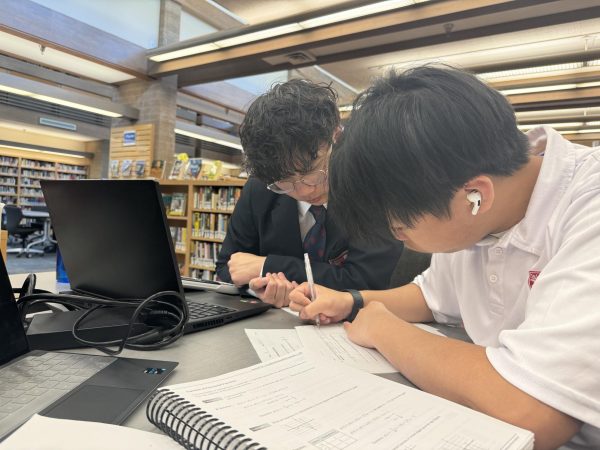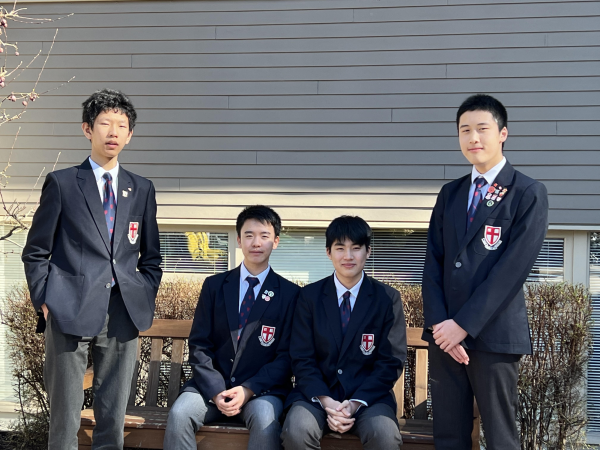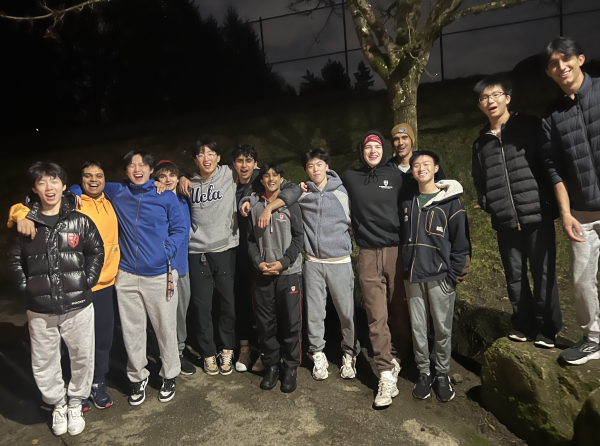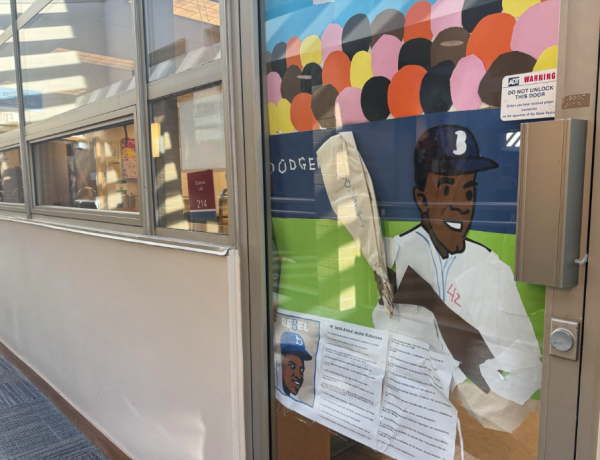The Importance of Sleep For Teens and Why Saints Boys Are Not Getting Enough
A survey conducted last year at St. George’s reported that the average student does not get enough sleep. Many students are very busy as Saints offers a variety of extra curricular activities in athletics, art, and clubs. Students can find it very challenging to balance these activities with school work.
But are all these demands on students these days, the only reason why teenagers are sleep deprived? Having adequate sleep is essential for a teenager’s growth and health. Sometimes we forget that we are still growing boys and sleep should be a higher priority in our lives. In this article we will explore the reasons why students at Saints are not getting enough sleep, the effects and problems of sleep deprivation and what teenagers can do to get more sleep other than joining the Siesta Nap Club.
Studies show that the optimal amount of sleep that teenagers need is 9 1/4 hours each night. Teenagers are still growing so the necessary hormones for growth such as testosterone are produced during sleep. The teen years are also the most active, so teenagers need plenty of rest. The National Sleep Foundation showed that less than 15 percent of teenagers get at least 8 1/2 hours of sleep. Sleep is important for keeping the heart healthy, allowing for increased physical activity and helping the body replenish. For our mental health, sleep helps decrease the risk of depression, reduces stress and improves intelligence. While all these factors of sleeping are extremely beneficial then why is it not more of a priority in young people of our generation?
In this age of technology, students seem to be distracted by activities on their computers and smartphones which are so accessible right at their fingertips. These include gaming, social networking, YouTube, and an array of TV shows and movies. Often students are up late obsessively playing computer games that captivate them and make them lose track of time. Rather than unwinding and getting ready for bed, they are highly stimulated by these computer games, keeping them fully alert. This habit of staying up late with electronics provokes sleeping problems for teens who will likely have difficulty falling asleep when they do eventually try. This perpetuates a vicious cycle of sleep deprivation. Mike Zhang, a grade 10 student admitted, “I stopped gaming now, but when I used to I remember it kept me up until 1 or 2 AM.”
Social networking also leads to a delayed bedtime. Whether its Facebook, Twitter, Instagram, Snapchat or just texting a friend these virtual connections to our “friends” on the other end are keeping up students as they are continuously chatting with one another. Sometimes teens will wake up in the middle of the night to their phone sound or vibration, alerting them of an incoming text or Social Media notification which really disrupts their quality and amount of sleep. In fact, bright computer device screen lights reduce melatonin, a hormone in the brain that is supposed to control sleep cycles.
At Saints we are encouraged to be involved in the various courses and activities offered which keeps students busy. Blake Hayward (Grade 10) reports, “During my hockey season I’ve been practicing a lot. I get home from practice around 10 to 11 PM at night and I was having to wake up at 5:00 AM the next morning to practice again. I don’t have a lot of time to do school work so I get it done early before my hockey practices.” Blake is among many students who are heavily involved in a sport that requires almost daily practice leaving them little time to do work and get a good night’s sleep.
While most students live close to the school on Vancouver’s westside a fair amount commute from other parts of the Lower Mainland such as Surrey, North and West Vancouver, Ladner, Burnaby, Richmond and even White Rock. These students need to wake up earlier for school and get home later, particularly when they have after school activities. In addition, they may have practices within their own communities, keep up with homework and overall have less time for sleep. Ardian Lagman (Grade 10) said, “Because I have games choice at school and I am part of Discovery and live downtown I don’t get a lot of time to finish work and academics so I end up going to bed around 11-12 at night. In the mornings I have to get up at 5 am to catch my bus. I picked up drinking coffee in the morning this year. It helped me a lot.”
Some students find themselves constantly procrastinating. As a result, their homework and studying is started at a later hour and often extends into the early morning. Ironically, studies have shown that students perform better on a test with a good night’s sleep compared those that stay up late studying. Not only does lack of sleep affect your health and well being but it also lowers your capacity to learn the next day. Obviously if students are tired the next day, they will find it more difficult to pay attention in class. Because many teenagers don’t get enough sleep during weekdays they try and make up for it on weekends by sleeping in the next morning after staying up late the night before. Unfortunately this negatively affects the quality of a teenager’s sleep and biological clock. This type of irregular sleep pattern though out the week gets your body used to going to bed later and not feeling tired when you should.
There are also other negative health conditions caused by a lack of sleep in teenagers. Sleep disorders such as narcolepsy, insomnia, restless leg syndrome and sleep anea can develop. Leonardo Aversa (Grade 10) who has suffered from insomnia said, ” Insomnia really had a negative impact on me. My sharpness has decreased as well as my academics.” Lack of sleep makes it hard to remember things, can lead to depression, and weaken the immune system which makes individuals become sick more often. In addition, it can increase one’s perception of pain and cause moodiness. It can even impact your dietary choices by making you eat junk food and unhealthy snacks leading to weight gain. Lack of sleep also leads to increased caffeine intake to stay awake. In order to be healthy, students should be taking care of themselves by sleeping better.
So how do we tackle this epidemic in teenagers? You can try and commit to a specific bedtime and wake time to ensure a good, consistent routine and sleep quality. You will feel less tired because the schedule will let your body adjust to your new sleeping patterns. Keep the same bedtime schedule even on weekends but sleep in a couple hours. Avoid eating, drinking or exercising a couple hours before bed as it will keep your body awake and energized. Sometimes it is good to have small snacks like toast, cherries, or warm milk that contain nutrients that can actually help you sleep. As hard as it may be, try to get your homework done as early as possible and not leave it to the last minute. Take away any screen time with technology such as TV, cell phones or computers which will disconnect from social media before you go to bed. You can try and take naps but make sure it does not interfere with your scheduled bedtime and wake time. What it all comes down to is making sleep a priority. A good night’s sleep has tremendous mental and physical benefits but it does require considerable discipline and commitment and is well worth it in the end.

Michael is presently in grade 10, starting his third year at Saint's. Michael is passionate about sports such as soccer, basketball, volleyball, cross-country...
















